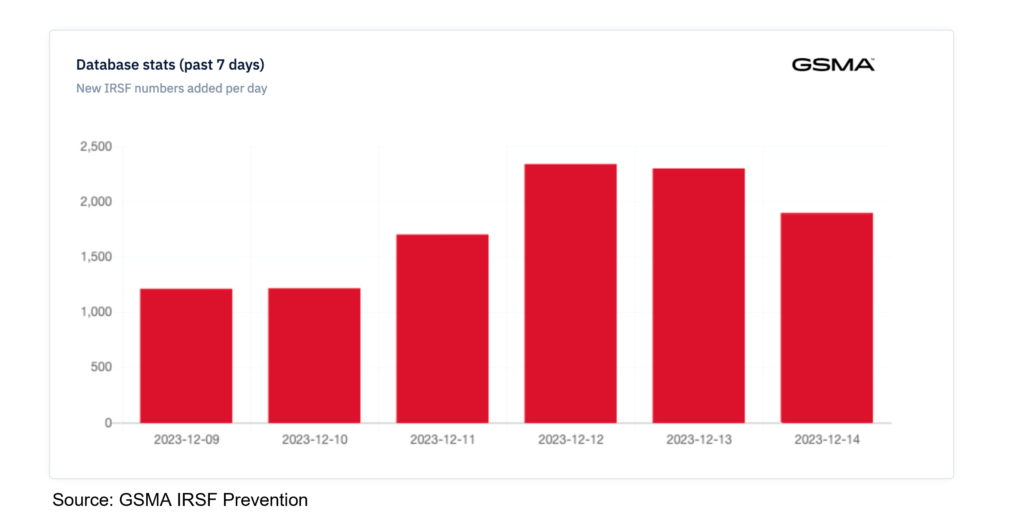GSMA’s Fraud Services Product Director Jordi Castellvi, responsible for our recently introduced GSMA IRSF Prevention service, explains some of the misconceptions around large scale SMS AIT and voice fraud.
Quality over quantity – why more fraud intelligence data is not always the answer
Sound IRSF and SMS AIT prevention methods often require large amounts of data – and in an era where data is often likened to currency, there’s a temptation to believe that more data always equates with better outcomes. This is true often enough – but one of the most common misconceptions around prevention of international revenue share fraud (IRSF) is that bigger is better. Or, to be more specific, that more data makes you safer. In reality, the volume of data isn’t the primary determinant of effective IRSF prevention – the key is how it’s used.
What are the challenges with vast amounts of IRSF data?
Massive datasets, while rich in potential, come with baked-in challenges. Sifting through terabytes of data to pinpoint fraudulent activities can be like searching for a needle in a haystack – and there are active drawbacks to processing vast amounts of data, too. The more data, the more computational power is required, and crucially the more time it takes to get the end result. This impact on timeframes is critical – in the time it takes to derive an actionable insight from mammoth datasets, a fraudster may have already changed tactics, rendering that information redundant. There might also be data privacy challenges if personal data is included into the mix.
Real-time IRSF data is a solid defence against fraudulent revenue losses
When it comes to fraud, speed is decisive. Attacks are often sudden and widespread. For example, SMS-related fraud is very time-sensitive because millions of SMS can be sent in a short time. Voice IRSF attacks can also be rapid and widespread – they have been known to cost 30,000 USD or more per hour when fraudsters make simultaneous calls from a compromised number. Working from only the most relevant datasets is therefore crucial. When fraudsters abuse a phone number verification process such as OTP with new numbers, companies are often unprotected – even those with machine learning capabilities cannot always differentiate malicious from legitimate numbers.
Real-time data however, such as that underpinning the GSMA IRSF Prevention, provides immediate insights into current fraudulent activities. And as the service is updated every twenty seconds, it is incredibly timely. IRSF Prevention, in particular, provides intelligence based on datasets of numbers and facilitators of IRSF and SMS AIT.

Using curated, real-time data ensures swift and effective responses to emerging threats. It narrows the focus to the most pressing and relevant indicators of IRSF, enabling mobile network operators and communication service providers (CSPs) to identify, verify, and counteract fraudulent activities promptly. By reducing the noise and honing in on actionable data, operators and CSPs can prevent potential revenue loss and shield consumers from fraud.
Modern fraud management systems: a paradigm shift
Leading modern fraud management systems (FMS) are built around the evolving nature of IRSF and are increasingly defined by the ‘quality over quantity’ approach. These systems prioritise data that is contemporary, relevant and actionable. They are increasingly supported by advanced machine learning algorithms and artificial intelligence, too. These are integrated to streamline data processing, predict fraud patterns and flag suspicious activities – all within the blink of an eye.
Vast datasets, once considered the gold standard for fraud detection, are not enough. The modern approach instead emphasises quality, relevance, and timeliness of data over sheer volume. By focusing on the quality and timeliness of data, the GSMA IRSF Prevention provides a proactive approach to IRSF and SMS AIT prevention, ensuring mobile network operators and other CSPs can stay one step ahead of criminality.
Read more about GSMA IRSF Prevention here or book a demo with us here.

